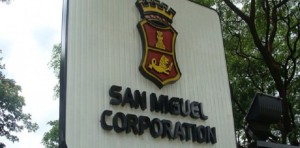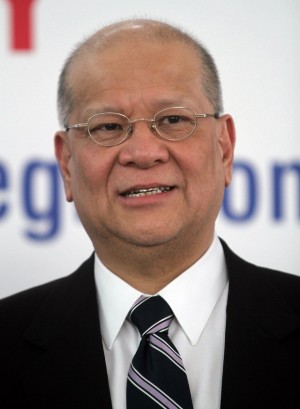SMC donates P1-B to gov’t for drug rehab centers
MANILA — It donated a total of P1 billion to typhoon relief efforts in recent years, making it the single biggest donor in Philippine business history, but today, San Miguel Corp. is broadening the scope of its corporate social responsibility program to be in tune with times.
The diversified conglomerate announced on Thursday that it would match its earlier record and donate a total of P1 billion to the government for the building of rehabilitation facilities as part of President Duterte’s campaign against illegal drugs.
“Peace and order is key to our country’s progress and development,” SMC president and COO Ramon S. Ang said in a statement. “More significantly, our human capital is key. By supporting government in this endeavor, we are helping create an environment that will enable various sectors of our society to participate in and contribute to our country’s growth.”
The exact disposition of the funds from the 125-year old firm will be determined by “concerned agencies of government,” the firm said.
San Miguel — the country’s largest conglomerate with group-wide assets of P1.3 trillion, and revenues of P329 billion in the first half of 2016 — earlier donated P500 million for housing projects in Cagayan de Oro and Iligan City in the wake of Typhoon Sendong, and another P500 million for a similar scheme in Leyte after Typhoon Yolanda.
Article continues after this advertisement
“In the fight against illegal drugs, rehabilitation is crucial to providing drug dependents a chance at restoring their lives and becoming part of the solution to a better Philippines,” Ang said.
“This way, we save lives, protect families and build better communities,” he added.
The company also said it already conducted initial talks with Philippine National Police Director General Ronald “Bato” dela Rosa to discuss the initiative.
Company officials said that the PNP chief had conveyed to Ang the growing need for more drug rehabilitation centers around the country because existing establishments were either for-profit facilities whose services were beyond the reach of the average Filipino or, in the case of the more affordable rehabilitation centers, already crowded.
Earlier reports have pegged the cost of rehabilitation services at existing centers between P20,000 and P100,000 a month.
Over the last decade, San Miguel has diversified from its traditional food, beverage and packaging businesses to industries key to national development. These include infrastructure, power generation, and oil refining and marketing.
The company said that the private sector could make a significant contribution to government’s efforts if corporate social responsibility objectives wer aligned with state initiatives. SFM

